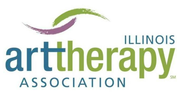|
By Caroline Eizik, ATR-BC, LCPC With the increasing concern over the spread of the coronavirus (COVID-19) in the United States, we imagine that many of you are apprehensive about the effect the pandemic will have on your practice with clients. If the virus continues to spread, it is likely that some people will be asked to stay at home, and some may actually be required to stay at home. What will this mean for you and your clients?
One option that has probably occurred to many of you is the type of services that include electronic communication. This type of therapy is called by various names – telehealth, online therapy, distance therapy, phone therapy, etc. Most of us have used distance technologies in some capacity with our clients, and some of us use these modalities regularly. The technologies in discussion include phone therapy, video conferencing, texting, email and apps. Distance therapy, as we currently know it, has been around for almost 20 years. However, the concept of distance therapy is not new. For instance, Sigmund Freud and other mental health professionals in the 20th century sent letters to people in their care. Through these letters, therapists were able to provide support and receive feedback from people in therapy. Self-help books and online support groups have also been around for a long time. While teletherapy is not new, it is growing in popularity. Research indicates that this is probably due to “customer demand”. With the increasing reliance on the internet for products and services, many people, especially young people, expect to be able to access services online. These urgent times afford us an opportunity to review some of the essential issues related to providing electronic therapy services. While technology has pushed ahead at a rapid pace, licensing laws have not kept up. Research indicates that there is little consistent guidance across states on how mental health professionals should use these forms of electronic communication. Only three states, California, Kentucky, and Vermont, have specific licensing guidelines for distance therapy use. Illinois licensing laws do not directly address distance therapy, but all regular laws do apply. Many states require that you be licensed in both states if you provide electronic services to people who live outside of your state. Providing services in your own state can be simpler and you may be able to reach people who would otherwise be unable to access mental health services. Insurance coverage of telehealth services varies widely across health plans, and reimbursement for these services is often not covered. Check with your malpractice insurance carrier to confirm that you are covered for both in state practice and out-of-state practice. There is currently legislation being proposed in Congress that would remove some of the barriers to distance therapy during national emergencies. This legislation, called the CONNECT for Health Act of 2019 (S.2741), is endorsed by the APA (The American Psychological Association). It’s current progress is not known at this time. Providing therapy online presents unique privacy risks. HIPPA (Health Insurance Portability and Accountability Act) rules apply to online practice and requires that therapists “maintain reasonable and appropriate administrative, technical, and physical safeguards for protecting e-PHI (electronic health information)”. Online video vendors offer HIPPA compliant services. There are also encrypted email services. A simple online search will lead you to these services. Skpe and GoogleTalk are not HIPPA compliant. In “Ethical Principles for Art Therapists,” The American Art Therapy Association (AATA) addresses the ethics involved in providing electronic services. Informed consent is unique and essential when providing distance art therapy. AATA recommends that art therapists inform clients of the limitations of confidentiality specific to electronic communication. These limitations include the effectiveness of encryption, the permanent nature of posted messages, and public access to information or art work that is posted digitally on electronic media sites. AATA states that if encryption is not possible, art therapists should inform clients of this fact and limit messages to general communication. Informed consent should specify the type of technology being used and should be written as well as verbal. This is a good time to discuss your boundaries around social networking and electronic communication with clients. Let them know what they can expect when it comes to your answering emails, texts, and phone calls. Data indicates that this type of treatment can be effective, but research is inconclusive about which treatments are suitable for telehealth and which are better done face-to-face. It is up to the therapist to assess a client’s potential to participate meaningfully through electronic means. It is essential to know if the client has the knowledge and skills necessary to benefit from distance therapy. Some clients may not be suitable to this process. A client who is suicidal may need more active and intensive services than can be provided long distance. It is important to have adequate emergency contact information in the case that your client faces a crisis. Make sure clients are comfortable with you contacting friends or family in their area. Electronic communications are different from the face-to-face interaction with which we are all most familiar. Issues include client safety, confidentiality, ethical and legal concerns. You should also explore your own capacity and willingness to engage in this type of work. Do you have the skills and knowledge necessary to manage a long-distance therapeutic relationship and crises, if they occur? Do you feel able to relate to others using this type of communication? There are many personal preferences and needs to consider. Distance therapy can lean toward becoming casual, so it is important to observe your interactions and to maintain your usual standard of care and ethical principles. Of course, it is essential that you and your client are competent in the use of the technology you are using. Training in online therapy is widely available (online) and may be helpful Some simple steps include keeping your computer camera at eye level so that you are not looking down at your client. If you take notes, let the client know that you are looking away to take a note. Before you begin, make sure the sound is adequate, but not too loud and that the visual resolution is good. There is data showing that you can form a therapeutic alliance using telepsychology and that these modalities can help people with all sorts of issues. It also can improve treatment by allowing therapists to support clients between sessions. Distance therapy provides client and therapist with a means to switch from in-person to distance therapy when someone is out of town or can’t commute. Telehealth improves access to care for those who live in rural areas or who, due to illness or mobility problems, can’t leave home. It may reduce stigma for those worried about that. It is not our intention to advocate for or against distance therapy, but to provide you with helpful information during this difficult time. We are aware that we did not address HOW you provide ART therapy services electronically, but it would be a great topic for another day. We wish you and your clients good health. References ilga.gov Illinois General Assembly APA Advocacy Update. (2020, March 4). In response to Coronavirus, Reducing Barriers to Telehealth Services, apa.org American Art Therapy Association. (2013, December). AATA Ethical Principles for Art Therapists, 15.0 Professional Use of the Internet, Social Networking Sites and other electronic or digital technology. arttherapy.org DeAngelis, T. (2012, March). Psychology is developing guidelines for practitioners in this rapidly changing area. American Psychological Association. Practicing distance therapy, legally and ethically. apa.org Good Therapy. (2019, April 24). Phone Therapy and Internet Therapy. goodtherapy.org HIPPA General Rules. U.S. Department of Health and Human Services. hhs.gov Illinois General Assembly Professions, Occupations, and Business Operations (225 ILCS 107/). Professional Counselor and Clinical Professional Counselor Licensing and Practice Act. ilga.gov Licensing Regulation on Telehealth. Illinois Mental Health Counselors Association. imhca.org Novotney, A. (2011, June). How psychologists stay ahead of the curve – and keep patients safe? American Psychological Association. apa.org
3 Comments
I totally agree when you said that the patient has to actually benefit from telehealth counseling by ensuring that they have the knowledge and skills for this aspect. I will share this information with my sister so that she can gauge if this is a good route to take for her. She just started to have mental health issues ever since the pandemic, so she can definitely benefit from talking to a professional before things get worse.
Reply
Leave a Reply. |
IATA BlogNews, features, and archived newsletters Archives
February 2021
Categories |


 RSS Feed
RSS Feed
